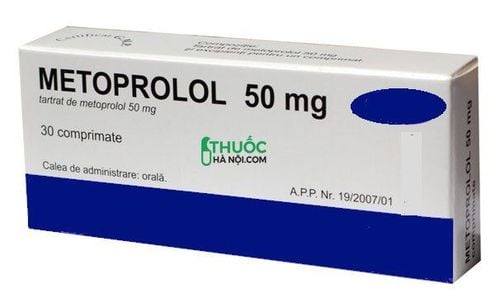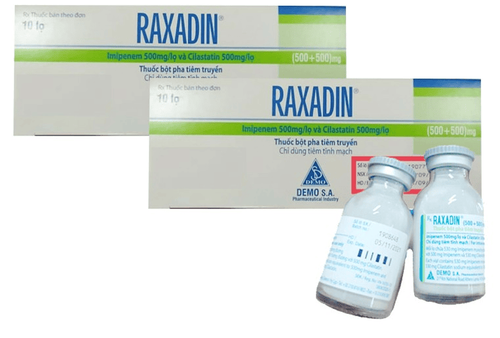This is an automatically translated article.
During the development of the fetal heart, any disorder that occurs has the potential to cause congenital heart defects. Congenital heart disease in adults is not an uncommon condition. This is a serious and potentially fatal disease if not detected and treated early. So what are the signs of congenital heart disease in adults?
1. Signs of congenital heart disease in adults
Usually, the signs are not specific in the defects of congenital heart disease. By the time the signs appear clearly, the disease has progressed and has greatly affected the heart function as well as the patient's health. Not only that, congenital heart disease is a disease that can recur many times despite being treated. Therefore, it is recommended that patients who see the following signs should immediately go to the hospital for timely treatment by a doctor:
Shortness of breath: This symptom usually appears at night, when the patient has other symptoms. strenuous activity, while lying down or even accompanied by signs of angina. Edema: hands, feet, face with signs of abnormal swelling. Enlarged abdomen: Caused by an excessive accumulation of fluid. Anxiety: The mood is always in a state of tension, anxiety and irregular heartbeat. Pale skin: The patient has pale skin and is always in a tired state. Exhaustion: The patient always feels tired and the muscles in the body gradually follow, although the symptoms of edema can cause the patient's body to become larger. Syncope: Often unexplained and comes on suddenly.
2. Common disorders in adult congenital heart disease
In adults, congenital heart disease often has the following common disorders:
The foramen ovale; Congenital valve defects; Have atrial and ventricular septal defects; Pulmonary vein abnormalities; Coarctation of the aorta ; Pulmonary stenosis ; Eisenmenger syndrome ; Tetralogy of Fallot ; Also ductus arteriosus; Pulmonary arterial hypertension; TGA (transposition of the great arteries). Regardless of the defect, the symptoms of congenital heart disease are not clear, patients need to regularly perform screening and follow-up to be able to detect early and treat promptly. Especially when there are signs as mentioned above, the patient needs to go to the hospital immediately for early treatment.
3. Causes of congenital heart disease
Until now, there is no definite conclusion about the possible causes of congenital heart disease. Fetal development can be influenced by many genetic and environmental factors. These factors all have an impact on the cardiovascular system in a certain way, leading to the risk of formation of heart defects, specifically:
Genetics: Birth defects are often considered to have associated with many inherited and familial syndromes. For example, children with Down syndrome often have heart defects. In addition, in the family with a history of the disease, the chance of passing the disease gene on to children is very high. Rubella disease: If the mother is infected with Rubella during pregnancy, it affects the development of the baby while in the womb. Diabetes both in type 1 and type 2: If the mother has diabetes before, the baby's heart may be affected. However, gestational diabetes does not increase the risk of having a baby with congenital heart disease. Use of drugs: During pregnancy, pregnant women use certain drugs that can cause congenital heart disease and other birth defects in the fetus. Some drugs have been linked to congenital heart defects such as: Lithium used to treat bipolar disorder, Isotretinoin used to treat acne. It is recommended that pregnant women only use the drug as prescribed by their doctor, weighing the benefits to be achieved with the treatment and the possible risks. Tobacco and alcohol: Stimulants used during pregnancy may contribute to an increased risk of congenital heart defects in infants. Environmental factors: If pregnant women live or work near smelters, wastes or mines, it can lead to frequent exposure to toxic substances, increasing the risk of fetal infection. birth defects.
4. Treatment of congenital heart disease in adults
Treatment of congenital heart disease in adults needs to be based on the characteristics and severity of the disease as well as the patient's health status and age. Some mild congenital heart defects do not need to be treated, just periodic screening to be able to closely monitor the condition, to ensure that the disease does not get worse. In other malformations, the patient can be treated with drugs or specific interventions.
Preventing endocarditis is a heart infection that requires lifelong monitoring and preventive measures in most cases of adult congenital heart disease.
For adult congenital heart disease, there are a number of invasive methods that can be indicated for treatment such as:
Informational procedures: Cardiac catheterization techniques can be corrected for some defects Congenital heart. This technique makes it possible to repair without the need for open chest and heart surgery. Heart implant device: a device that corrects an abnormal heart rhythm (implanted defibrillator) or a device that controls the heart rate (pacemaker) can help patients improve some of the associated complications. to congenital heart defects. Open-heart surgery: If cardiac catheterization procedures fail to correct the heart defect, open-heart surgery should be recommended for further intervention. Heart transplant: usually indicated for serious defects on the heart that cannot be repaired, heart transplant is considered as a last resort that can be prescribed by a doctor after an accurate and thorough assessment. the more the state of the disease.
5. Congenital heart disease complications in adults
There are still some cases of congenital heart disease that are benign for life without any symptoms. These cases account for a very small percentage. For the most part, patients with heart defects will show symptoms when they reach a certain age. If the patient is not detected, diagnosed and treated promptly, the possibility of serious complications is very high:
Irregular heartbeat (with arrhythmia): Usually occurs when the The signal that conducts the heart rhythm does not work properly, the heart may beat too slow, too fast, or irregularly. In some subjects, severe arrhythmias can cause stroke or sudden death if left untreated. Scar tissue in the heart from previous surgeries may be a contributing cause of this complication. Heart infection (endocarditis): An infection of the lining of the heart, usually when germs or bacteria enter the bloodstream and reach the heart. If left untreated, endocarditis can destroy and damage heart valves and lead to stroke. Stroke: Birth defects can cause blood clots to pass through the heart and then travel to the brain, reducing or blocking blood supply to the brain. Pulmonary arterial hypertension: The presence of abnormal passages in congenital heart defects leads to increased blood flow to the lungs, creating pressure. Over time, the heart muscle weakens and may fail completely. Heart failure: With pressure after a long period of abnormal activity, the heart can weaken and lead to a state where it cannot continue to pump enough blood to meet the body's needs. Degeneration of the heart valves: Abnormal connections between the chambers of the heart can put extra strain on the heart valves and cause them to deteriorate at a faster rate than normal. In summary, adult congenital heart disease is defined as a heart defect that occurs in the fetus and has been present since birth. The disease often progresses silently, so to minimize the possible consequences. It is recommended that patients need to be screened and re-examined periodically so that complications can be detected early as well as strictly adhere to the treatment regimen of the doctor.
Please dial HOTLINE for more information or register for an appointment HERE. Download MyVinmec app to make appointments faster and to manage your bookings easily.













